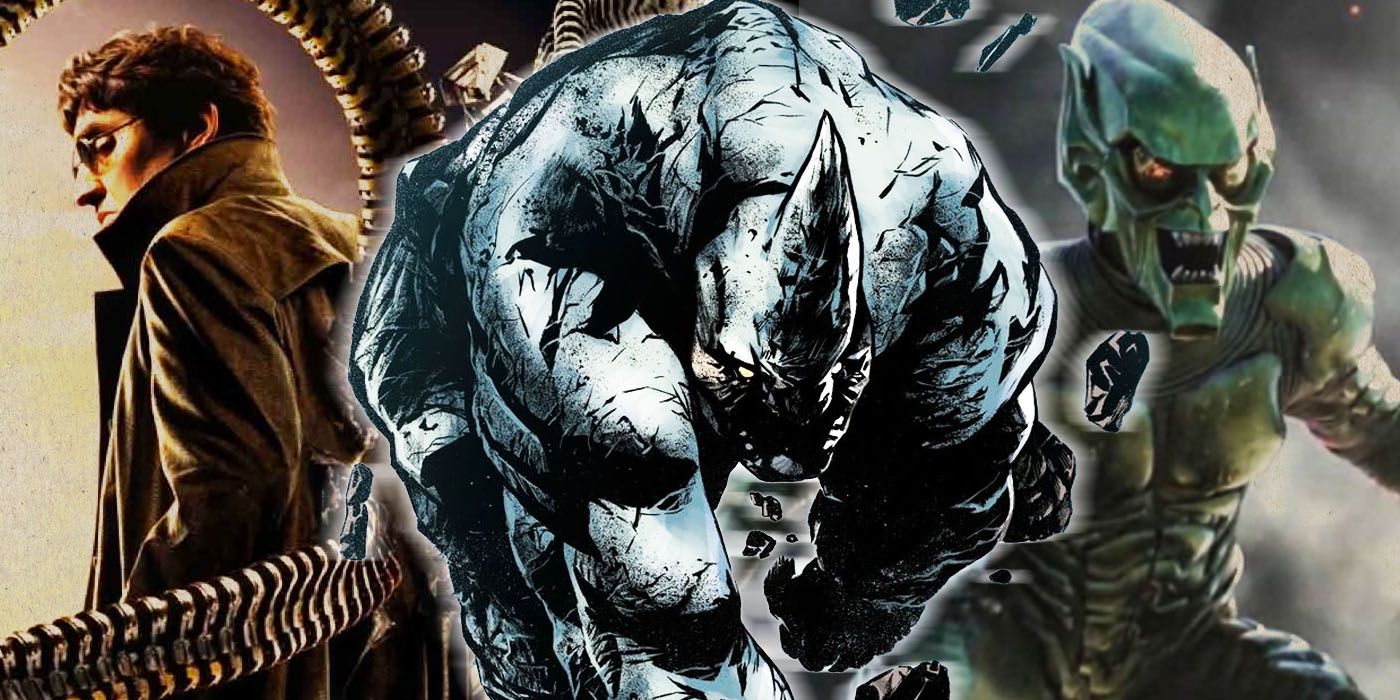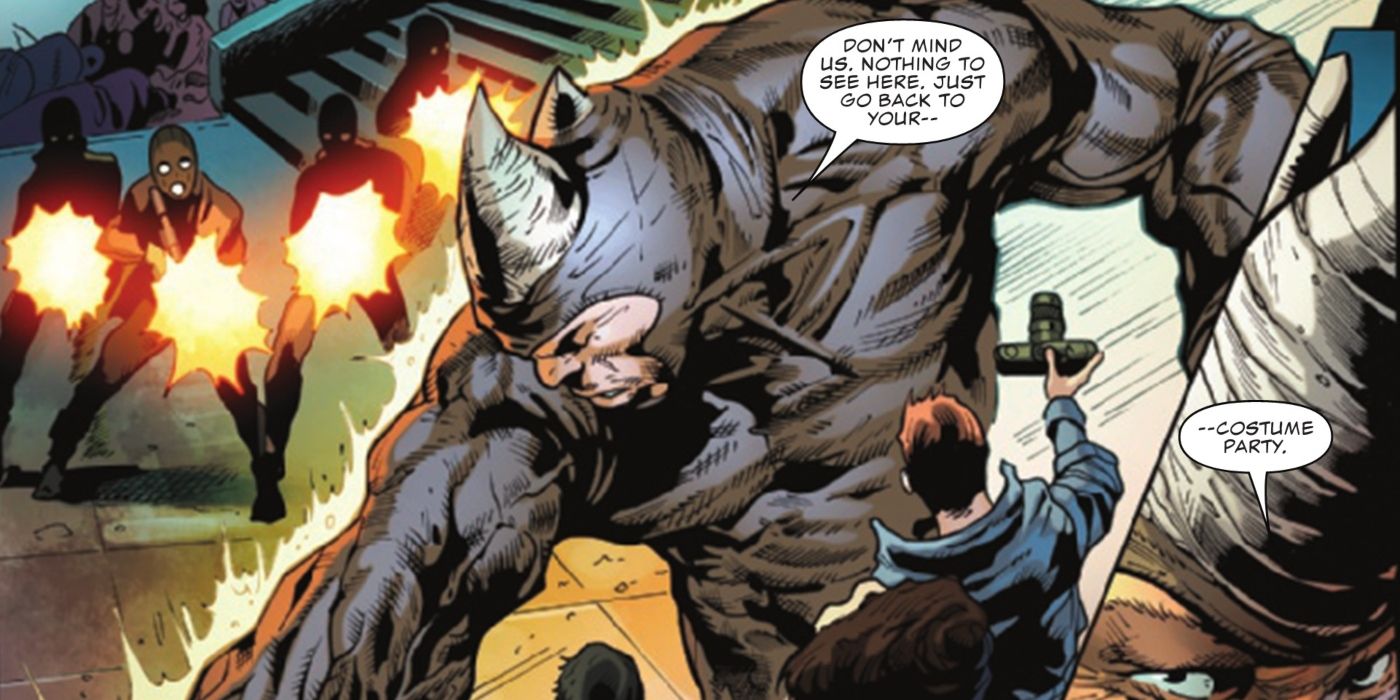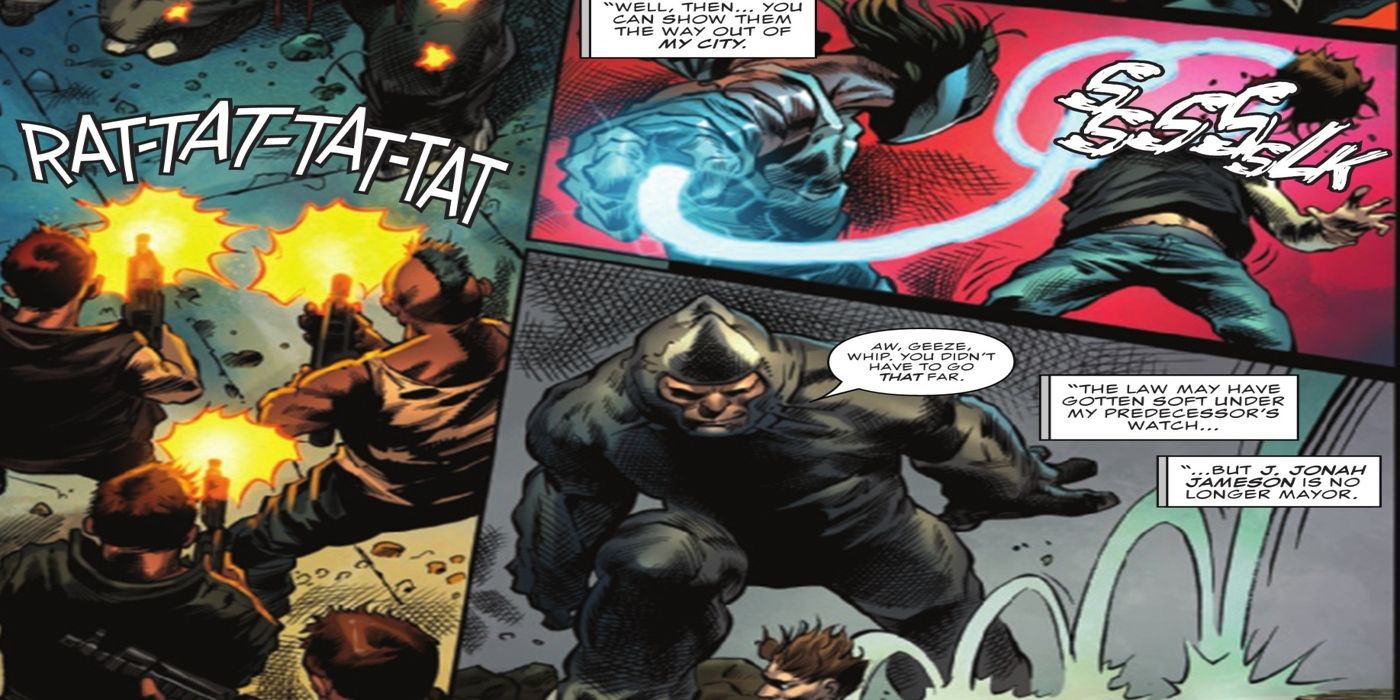WARNING: The following contains spoilers for Devil's Reign: Villains For Hire #1 on sale from Marvel Comics
Most of Spider-Man's foes from previous films have made an appearance in Spider-Man: No Way Home. One of the only ones who never appeared, but was referenced, was Paul Giamatti's Rhino from the Andrew Garfield Spider-Man films. It's likely his cartoonish elements might have been too much of a tonal shift for the otherwise emotionally heavy film.
But the original comics Rhino might have been too genuinely sad to feature in the film. Aleksei Sytsevich, aka the Rhino, may seem at first glance to be a one-note and silly villain. But he's quietly one of Spider-Man's most tragic villains, with a dark edge that would likely feel out of place in the Marvel Cinematic Universe.
The Rhino is, on paper, one of Spider-Man's most ridiculous villains. A hulking (but dim) man trapped within a Rhino suit, the villain has often been utilized as a punching bag for Spider-Man. But there's also a history of the character being surprisingly sweet-natured. He's found love multiple times and has been shown to be shocked at the brutality of others. Despite his own murderous past, he's clearly the most horrified by the actions of his fellow villains in Devil's Reign: Villains For Hire #1 (by Clay McLeod Chapman, Manuel Garcia, Lorenzo Ruggiero, Scott Hanna, John Livesay, Andy Owens, Victor Nava, Dono Sanchez-Almara, Fer Sifuentes-Sujo, and VC's Joe Sabino). The rest of the group was either cavalier or even excited about the prospect of murder, but Rhino could only offer a muted argument against Whiplash beheading some of their enemies. He even did his best to save civilians during a terrorist attack, a far cry from his more aggressive allies.
Rhino's tragic elements are surprisingly existential as opposed to most other Spider-Man villains. Despite his dim-witted aspects, multiple stories have explored his human desires and failings. "Flowers for Rhino" from Spider-Man's Tangled Web focused on Rhino briefly becoming a genius, only to find the increasing intellect separated him from his peers, leading him to the verge of self-destruction. He was also able to fall in love and marry a nice woman named Oksana, only for events during the "Grim Hunt" period of Amazing Spider-Man to conspire against him. An heir to the Rhino identity came for him and, despite Spider-Man's best efforts, killed Oksana, leaving a heartbroken Alexi to give in to his anger anew and resume his role as the Rhino.
Recalling his lighter elements paints Rhino in a very different light, especially in regards to his cinematic appearance. In Amazing Spider-Man 2, Alexi is a largely comical force; a broad cartoonish villain who felt out of place in the film around him. But Rhino's tragic backstory lends itself to a more dramatic character than he's usually portrayed as. The attempts (and failure) to escape his criminal background turn him into a genuinely tragic figure. Despite his attempts to better himself, to grow as a person, to even change his life, he can't escape who he is. Alexi is the Rhino, there's no stopping that, and every attempt to find happiness is seemingly doomed to fail.
The MCU is largely defined by its character's ability to grow and change into better people. This theme includes heroes (Iron Man, Thor, Doctor Strange) and villains (Loki, Nebula). Redemption and positive growth are benchmarks of the Marvel Universe, especially in modern films. But Rhino serves as proof that despite your best efforts, sometimes that redemption is impossible. You can try to change for the better, and it doesn't matter in the long run. It's a grim lesson at the heart of the character, and likely one that the family-friendly MCU wouldn't be too eager to highlight. It makes sense why the Rhino hasn't appeared in the MCU yet.



